Politics and Government: Immigration
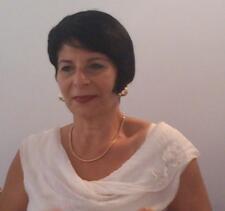
Orit Adato
Orit Adato has held many roles throughout her career in security, from head of the Israeli Women’s Corps to Commissioner of the Israel Prison Service. After twenty-eight years of work in security, twenty-four of which were in the IDF, Adato retired with the rank of lieutenant general and founded her own international consultancy firm on security.

Yelena Akhtiorskaya
Ruth Aliav-Klüger
Ruth Aliav-Klüger was the only woman among the early members of Mosad le-Aliyah Bet, the “illegal” immigration branch of the underground paramilitary organization Haganah that smuggled Jews out of Europe and into Palestine during World War II.
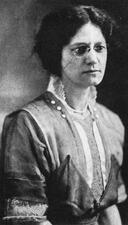
Mary Antin
Argentina: Jewish White Slavery
Between 1875 and 1936, Buenos Aires was a major prostitution hub. Immigrant Jewish women were desperate enough to seek work in legally sanctioned brothels run by Jewish pimps. Although Jewish women compromised just a third of legal prostitutes in Buenos Aires in 1910, they were disproportionately visible in Argentina’s Catholic society.

Argentina: Sephardic Women

Assimilation in the United States: Nineteenth Century

Assimilation in the United States: Twentieth Century
Jewish women assimilating into a changing American society across the twentieth century navigated often conflicting gender roles. As they strove to achieve upward social mobility, they adapted Jewish assumptions of what women, especially married women, should do to accommodate American norms for middle class women. Their collective accomplishments registered in political activism, organizational creativity, strong support for feminism, religious innovation, and educational achievement in the face of antisemitism, stereotypes, and denigration.

Australia: 1788 to the Present
The first Jewish women, like the first Jewish men, arrived in Australia on the very first day of European settlement in 1788. Those convict pioneers were followed by free settlers who made Jewish communal and congregational life viable and helped to develop the vast continent. Jewish women have made significant contributions to Australia's national story.
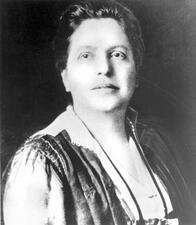
Autobiography in the United States
As the status and roles of women in American and Jewish life changed over the twentieth century, more and more American Jewish women turned to autobiographical writing as a means of documenting these changes and addressing questions of American, Jewish, and female identity. Jewish women created accounts of the immigrant experience, feminist or activist involvement, political and literary involvement, Holocaust survival narratives, as well as coming-of-age memoirs.
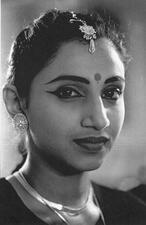
Baghdadi Jewish Women in India
Golde Bamber
Golde Bamber envisioned and institutionalized new educational structures to serve Jewish immigrant communities in Boston in the late nineteenth and early twentieth centuries. She served as director of the Hebrew Industrial School for Girls for forty years. Bamber’s pioneering work influenced settlement house, vocational, Jewish, and nursery school education in Boston and beyond.

Miriam Baratz
Miriam Baratz was a founding member of Deganyah Aleph, the first socialist Zionist farming commune in pre-state Israel. She advocated for communal childcare and education, and for a cooperative and egalitarian economic structure. The gender paradigm she helped establish at Deganyah set a precedent of egalitarianism for the entire kibbutz movement.
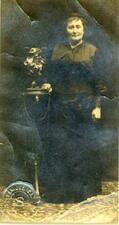
Lena Barber

Vicki Baum
Writer, playwright, and screenwriter Vicki Baum is best known for her book, adapted into both the Broadway play and Oscar winning film, Grand Hotel. She wrote over 30 books and became one of the world’s best-selling authors of her time. Her works frequently depict powerful, self-reliant women.
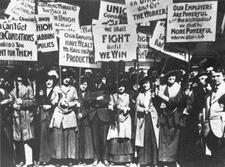
Dorothy Jacobs Bellanca
Born in Latvia before immigrating to Baltimore as a child, Dorothy Jacobs Bellanca was one of America’s most remarkable women’s labor leaders. An outstanding union organizer and a captivating speaker, Bellanca understood the problems of the working class—people of all genders, ages, and backgrounds—and sought to improve conditions for workers.
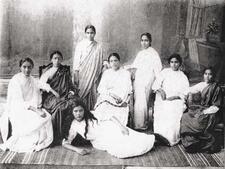
Bene Israel
Margarete Berent
Margarete Berent was the first female lawyer to practice in Prussia and the second female lawyer ever licensed in Germany. In 1925 she opened her own law firm in Berlin and, after fleeing Nazi Germany, opened her own firm in the United States. Not only was she the first female lawyer and the head of her own law firm, but she was also an ardent feminist and active in promoting opportunities for women.
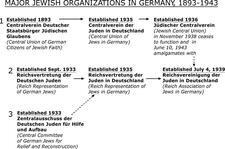
Cora Berliner
Cora Berliner was an economist and social scientist who held leadership positions in several major Jewish organizations in Germany between 1910 and 1942. These organizations included the Association of Jewish Youth Organizations in Germany, the Reich Representation of German Jews, and the League of Jewish Women.

Clementine Bern-Zernik
A lawyer by training, Vienna-born Clementine Bern-Zernik produced broadcasts for the US Office of War Information in London during the war, served as the director of a Displaced Persons Camp in post-war Germany, and spent the last 50 years of her life as a UN liaison to the New York Public Library. Throughout her life she maintained a strong Austrian identity and was a founding member of the Austrian-American Federation.
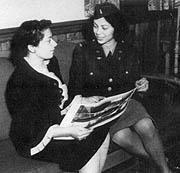
Matilda and Bernice Blaustein
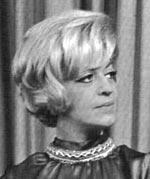
Brazil, Contemporary
Brazil is home to the second largest Jewish community in South America. Jewish women played important roles in the absorption of Jewish immigrants from Europe, the Middle East, and North Africa, and also made important contributions to Brazilian intellectual and artistic life.
Britain: Nineteenth and Twentieth Centuries
Since being allowed to resettle in 1656, Jews in Great Britain have established deep community ties throughout their diverse community. Class differences between early Sephardic settlers and the later wave of Ashkenazi immigrants gave rise to numerous Jewish charitable organizations, in which women played a key role.
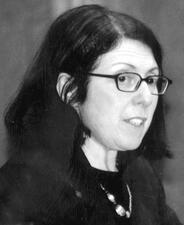
Canada: From Outlaw to Supreme Court Justice, 1738-2005
The positive aspect of the Canadian mosaic has been a strong Jewish community (and other communities) which nurtured traditional ethnic and religious values and benefited from the talent and energy of women and men restrained from participation in the broader society. The negative aspect has included considerable antisemitism and, especially for women, the sometimes stifling narrowness and conservatism of the community which inhibited creative and exceptional people from charting their own individual paths.
Elinor Caplan
Elinor Caplan is a Canadian Liberal Party politician who spent a quarter-century in elected office. She was the first Jewish woman to serve as cabinet minister at the provincial and federal levels. Caplan served as a Member of Toronto’s Provincial Parliament for twelve years and in 1997 she was elected to federal parliament.


